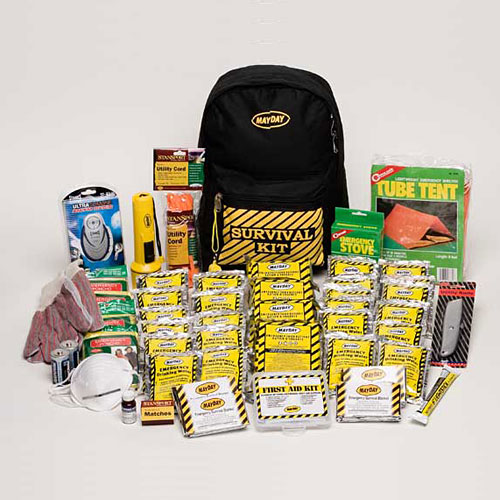‘It really takes an earthquake to get people to start preparing,’ says B.C. emergency kit maker

Survey from Emergency Preparedness B.C. says only 13 per cent of households have complete plan
A recent article on CBC.ca highlighted British Columbian’s sudden interest in Earthquake emergency preparedness following a string of serious earthquakes off the coast of B.C. and California. While it’s fantastic that these events have encouraged people to get serious about first aid kits and personal safety in emergency situations, it shouldn’t take a natural disaster for people to prioritize this.
Sarah Pickering, CEO of Pickering Safety can attest to the unfortunate reality that many people are not prepared to survive on their own without aid if a destructive earthquake occurs in the province. Most people don’t keep a first aid kit on-hand and especially not one that could help them survive through a serious natural disaster.
Some interesting stats that were highlighted in CBC’s report included a statistic from an emergency preparedness survey done by the province in 2017 that said that only 13 per cent of residents describe their emergency plan as complete, meaning they have a written plan of what they would do in an emergency and the supplies to get them through.
Emergency Preparedness in B.C. Needs to be Taken More Seriously by Locals
Some easy ways to do this:
- Purchase an emergency first aid kit and emergency preparedness safety supplies.
- Make plans with loved ones about what to do in an emergency.
- Know who your neighbors are so that in an emergency everyone will be accounted for.
- Volunteer on neighborhood response teams.
- Push politicians to improve policy & increase budgets to retrofit infrastructure.
On Friday morning in early July 2019, three earthquakes registering between 4.5 and 5.6 magnitude were detected off the coast of B.C. south of Haida Gwaii within minutes of each other. The tremors were classified as aftershocks to a Wednesday quake but caused no damage.

That same Friday afternoon in July 2019, a magnitude 6.9 earthquake jolted Southern California and was felt as far away as Mexico, causing building damage, fires and several injuries. It came after a 6.4 quake hit a day earlier. Seismologists in Canada say the quakes off the coast of B.C. and those in California are unrelated, but are enough to scare some people into understanding that something worse could be coming.
“For earthquakes, the seismic hazard risk and its potential implication for economic loss and injuries and possible fatalities is very real,” said Dr. Honn Kao, a seismologist with Natural Resources Canada.
Scientists say there is a one in five chance of a magnitude 7.0 crustal earthquake happening close to Victoria and Vancouver in the next 50 years, which could damage bridges, roads and telecommunication systems. Geophysicist Mika McKinnon, who is a disaster researcher, says the recent earthquakes and the knowledge that more serious earthquakes are coming should motivate people to plan ahead.
“I always treat this as a good reminder to check your earthquake kit, update your plan, do some of those things that you always meant to do but never really got around to,” she said.
Pickering Safety recommends items like:
‘Thinking and planning now’
Mika McKinnon says during disasters people panic and aren’t able to think clearly or make good decisions. It’s good to plan while you have a level head.
“You want to do your thinking and your planning now,” she said. “Write it down so when you’re under stress and you’re panicking and your scared and you’re anxious, you can thank your past self and just open up the plan and do what it says.”

